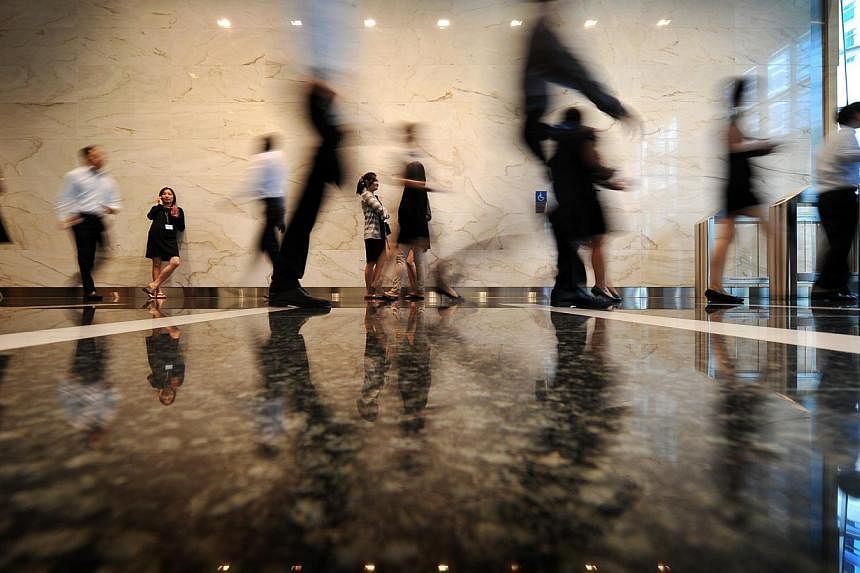This article was first published on Sept 4, 2014
Junior bankers on Wall Street are set for a bumper pay rise next year, but their counterparts in Singapore should probably not get their hopes up.
Human resources experts believe these anticipated pay hikes of 20 to 25 per cent will not be repeated here.
Singapore salaries are already high and there is a plentiful supply of investment bankers, the type of United States banker in line for most of the salary hikes.
US banking giants such as the Bank of America and Goldman Sachs Group were recently reported to be raising salaries for some junior staff by at least 20 per cent.
The hefty pay rise is aimed at retaining talent and improving working conditions.
JPMorgan Chase and Citigroup are likely to follow suit, while Morgan Stanley is boosting salaries by about 25 per cent for some bankers in the investment-banking and underwriting units.
Mr Chris Mead, regional director of Hays in Singapore, said: "We don't anticipate that Singapore will follow Wall Street. Singapore is not as investment banking-focused as London and New York."
Also, there is an abundance of local and overseas talent here for the limited number of roles in investment banking.
Mr Mead added that the local market is not as competitive as New York and London.
Mr William Russell, director of Ambition Singapore, said: "US salary adjustments shouldn't impact too heavily on what happens in Singapore initially."
However, he said that if it is an issue in Wall Street, the markets in London, Frankfurt, Hong Kong and Singapore will be facing similar issues with regard to attracting the best analysts.
"Some sort of reaction in these markets is likely in due course, although I wouldn't expect the adjustments to be so steep. We foresee banks in Singapore raising bases as there might be a cap on bonuses," he added.
Ms Linda Teo, country manager of ManpowerGroup Singapore, added that starting pay in Singapore for junior bankers has generally remained stagnant in recent months.
Also, most Asian bankers are paid better than Wall Street bankers, noted Mr Russell, "because they have not adjusted the conversion rates".
He noted that starting pay for bankers is at about a $100,000 to $120,000 base, depending on the bank.
This is despite the "reputational knock" that the sector took during the global financial crisis, causing bonuses to be lowered and pushing some of the brightest graduates to careers in other banking areas, said Mr Russell.
The shortage of talent comes at the middle level of investment banks, said Mr Ignatius Goh, consultant in financial services at Robert Walters Singapore.
He said: "Typically bankers with three to five years' experience start exploring different career paths.
"However, Singapore is able to attract a healthy supply of local and foreign candidates as the country continues to prosper as a global city."
Niche fields such as energy, aviation and shipping are where bankers with industry expertise are in demand, he noted.
While banking salaries are not likely to mirror the rise in the US, there is one exception in the banking field, where staff tend to get substantial increases.
Ms Teo said new banking staff could expect a pay rise after three to six months of employment.
"As more banks are initially hiring bankers on contract only to convert them to permanent staff later, the increase in pay of 30 to 40 per cent also coincides with the conversion," she said.
These sorts of increase were occurring in investment banking as new hires are converted to permanent staff.
Robert Half Singapore managing director Stella Tang said: "If there is a rise in salary for fresh starters, this could be attributed to inflation and rising salary expectations of fresh graduates in recent years."


